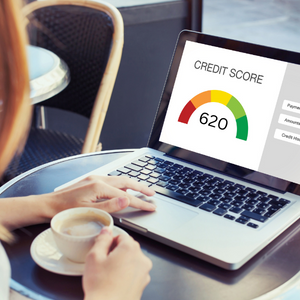
If you have ever fallen victim to a lending scam, or a fraudulent lender, rest assured that you are not alone. In 2021, the Canadian Anti-Fraud Centre (CAC) received 107,139 reports of fraud targeting 68,061 victims. These incidents of fraud resulted in more than $380 million being lost by Canadians. That amount was up 130% from 2020.
As these fraudulent lenders become more sophisticated, and as the economy gets tougher, your best shield of defense is knowledge. Understanding what to look for to weed out the legitimate lenders from the frauds could save you hundreds, or even thousands of dollars. At the end of the day, trust your gut – if it doesn’t feel right, it probably isn’t.
Warning Signs of a Fraudulent Lender
Previously, we published an article about the Three Warning Signs of Lending Scams; while those warning signs still hold true today, the scams are getting more intricate and there is more to watch for. As they say, “the devil is in the details”.
1. They Call You
Getting a call from a lender is not a bad thing, unless you’ve never applied to them. There are a number of lending companies that operate with a callback system, so receiving a call isn’t necessarily a sign of a scam. But if you’ve never applied to them, how do they know you need a loan?
If you are unsure about the legitimacy of the call, ask for their name and a callback number. Any legitimate lender should provide this information freely and without hesitation.
2. They Ask You for Something Before Issuing Your Loan
If you are ever asked for an insurance payment, a deposit, a bitcoin payment, or to purchase gift cards in exchange for a loan, don’t! This is a sure sign of a lending scam. A legitimate lender will never ask for any form of payment before getting your money.
Examples of fraud include being asked for an $800 insurance payment to get a $10,000 loan, or being instructed to go to Wal Mart and purchase gift cards. Neither of these practices are legitimate, it is a way for them to take your money.
NEVER PAY MONEY TO GET MONEY!
3. They Ask For Your Banking Information Over the Phone
A legitimate lender will never ask for your banking information over the phone. Legitimate lenders use an online portal that is secure, encrypted, and safe to use. They are vetted by banks and credit unions to ensure your personal and banking information is protected. Never provide personal information over the phone.
4. They Contact You From a Non-Business Email Address
A lender using a Gmail, Hotmail, Yahoo or Live email address is almost certainly not legitimate. A real lender’s email address contains their business name. Additionally, if you email them back and your email does not deliver, they are not a legitimate lender.
5. They Have No Website
The vast majority of fraudulent lenders have no web presence to find other customer reviews. Legitimate lenders will always have a website and you should be able to locate them through the Better Business Bureau.
6. They Have a Physical Address That Doesn’t Line Up
Many fraudulent lenders select a random address to list as their location to appear more legitimate. If you Google their address look for the following:
- Does the address also have the same phone number they provided?
- Is the business actually listed on the map?
- If you use Google Street View is there an empty lot, storage facility or a building with no markings?
If you cannot confirm the location of the business, they are not a legitimate lender.
Warning Signs of a Fraudulent Loan Contract
Fraudulent lenders will often send you a contract for your loan, despite never having received an application from you. If this is one of your first interactions, this is a warning sign. While the contracts may look professional and legitimate at first glance, take some time to look for these common items to determine the true legitimacy.
- The contract mentions “payday loans” between $2,500 and $10,000, with a low interest rate and payable over 60 months. Payday loans rarely exceed $750 and must be paid back in a matter of weeks.
- The company name has multiple spellings throughout the contract.
- The contract says they are approved by the OCCC (Office of Consumer Credit Commissioner) – this does not exist in Canada.
- The fine print mentions laws or regulations that are not Canadian-related.
What to Do If You’ve Encountered a Scam
If any of the warning signs above ring true to your experience with a “lender”, please do the following:
- Immediately contact your bank. Let them know you were in communication with a fraudulent lender and they will instruct you on next steps. You will likely need to close your existing accounts and open new ones.
- Contact both Credit Bureaus to let them know you believe your identity has been stolen. They will also walk you through the process and likely add Fraud Alert to your file.
TransUnion: 1-800-663-9980
Equifax: 1-800-465-7166 - Contact the fraud division of your local police. Provide them with as many names, phone numbers, email addresses and websites as you have from your interaction with the fraudulent lender.
- Contact all creditors (phone, hydro, etc.) to let them know you believe your identity has been stolen. Ensure there are securities added to your accounts that allow only you to make changes.
- Block all emails and phone numbers from the fraudulent lender. Some are relentless and will hound you for days to convince you to provide your banking information, cash, bitcoin, giftcards, etc. Provide yourself some peace and simply do not let them contact you.
How to Protect Against Future Scams
The best thing you can do is keep a written record of all lenders and creditors you apply with, and when. Make note of the name of the company, their official website and phone number and whether they are a lender, a lending marketplace, a credit card company, etc. Creating a list makes an easy point of reference when you receive a call about your loan. If you haven’t applied to them, they have no business offering you a loan and are most definitely not legitimate.
If you are still unsure about the legitimacy of a company, contact your provincial consumer protection agency to confirm that they are in fact a legitimate lender. It is better to be safe than sorry! If your gut ever tells you something doesn’t feel right, or something feels too easy, listen!



